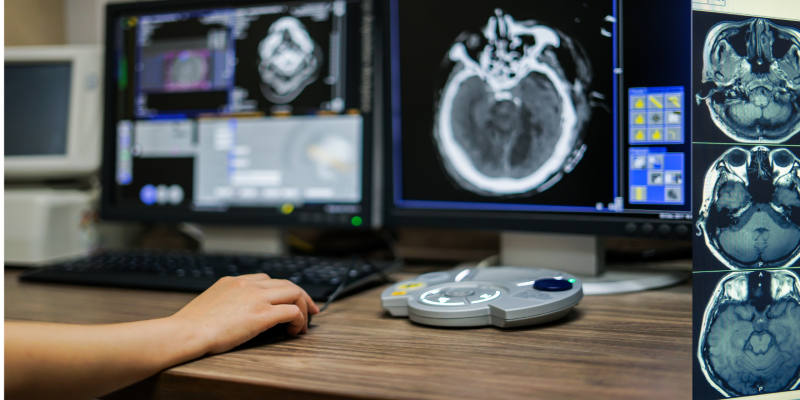
What Are the Benefits of Personalized Medicine?
 Health & medical treatment
Health & medical treatment Personalized medicine is changing the healthcare landscape by tailoring treatments to the individual and using genetic, environmental, and lifestyle factors to guide medical decisions. As we approach 2025, the potential for this approach to reshape how diseases are diagnosed, treated, and prevented continues to grow. In this article, we'll delve into the various benefits that personalized medicine brings to the table, from improving patient outcomes to reducing healthcare costs, and discuss how this shift is making healthcare more precise and patient-centred.
Personalized medicine is changing the healthcare landscape by tailoring treatments to the individual and using genetic, environmental, and lifestyle factors to guide medical decisions. As we approach 2025, the potential for this approach to reshape how diseases are diagnosed, treated, and prevented continues to grow. In this article, we'll delve into the various benefits that personalized medicine brings to the table, from improving patient outcomes to reducing healthcare costs, and discuss how this shift is making healthcare more precise and patient-centred.
A Shift From One-Size-Fits-All To Tailored Treatments
For decades, medicine followed a "one-size-fits-all" approach, where treatments were based on average responses for large populations. However, this model needs to account for individual patients' unique genetic makeup, lifestyle, and environmental factors. Personalized medicine moves away from this broad approach, focusing on precision and customization. By utilizing genetic tests, biomarkers, and other individual-specific data, doctors can now prescribe treatments much more likely to work effectively for each patient.

One of the most significant advantages of personalized medicine is its ability to provide more effective treatments. Traditional drugs often have varying degrees of effectiveness and can lead to adverse side effects due to the lack of consideration for an individual's genetic profile. However, personalized medicine allows healthcare providers to select therapies specifically suited to a patient's genetic makeup, resulting in higher efficacy and fewer complications. For instance, pharmacogenomics, a subset of personalized medicine, examines how genetic variations affect a person's drug response. This allows doctors to avoid prescribing medications that could be ineffective or harmful.
Early Disease Detection And Prevention
Another compelling benefit of personalized medicine is its potential to identify diseases earlier than ever before. Many diseases, including cancers, have genetic markers that can signal an increased risk long before symptoms appear. By conducting genetic screenings, doctors can detect these risks early, allowing for timely interventions. This approach not only helps in diagnosing conditions early but also in preventing them from progressing to more severe stages.

For example, in the case of breast cancer, genetic testing for mutations in the BRCA1 and BRCA2 genes can inform decisions on preventive treatments or even surgery. Women with these mutations may opt for mastectomies or other prophylactic measures to reduce their risk. By identifying at-risk individuals early, personalized medicine empowers patients to take control of their health before disease manifests.
Precision Cancer Treatment
Personalized medicine has made significant strides in cancer care, where one-size-fits-all treatments often fall short. Genetic testing of tumours has allowed doctors to understand the specific mutations driving a patient's cancer. With this knowledge, oncologists can select treatments that target those mutations more precisely, often leading to better outcomes.

Personalized cancer treatments, such as targeted therapies and immunotherapies, have transformed cancer care. These therapies are designed to attack cancer cells precisely without harming healthy cells. For instance, drugs like Herceptin target HER2-positive breast cancer cells, significantly improving survival rates for patients with this type of cancer. This personalized approach is more effective and less toxic than traditional chemotherapy.
Improving Chronic Disease Management
Chronic diseases, such as diabetes, cardiovascular diseases, and autoimmune disorders, require long-term management. Personalized medicine is particularly beneficial in these areas, enabling doctors to develop customized treatment plans based on an individual's genetic predispositions and lifestyle factors. For example, a person with a genetic predisposition to high cholesterol might benefit from a different medication regimen than someone without this risk, even if both patients are dealing with the same condition.

Moreover, this tailored approach allows for better disease management. Patients with chronic conditions often require ongoing adjustments to their treatment plans. Personalized medicine makes it easier to identify the most effective interventions, helping to improve the patient’s quality of life while minimizing unnecessary side effects. This is especially important for individuals who may be taking multiple medications or dealing with complex health issues.
Enhancing Patient Engagement And Compliance
One of the often-overlooked benefits of personalized medicine is its potential to increase patient engagement. When patients understand that their treatment plan is uniquely tailored to their needs, they are more likely to feel involved in their care. This sense of ownership and involvement can lead to better adherence to treatment plans and lifestyle changes.
For example, genetic testing and personalized feedback allow patients to understand better how their lifestyle choices impact their health. Knowing that certain foods or activities may affect disease progression can motivate patients to make more informed decisions. This active participation in healthcare is a significant factor in improving overall health outcomes.
Reducing Healthcare Costs
At first glance, personalized medicine may seem expensive, but it can reduce healthcare costs over time. By focusing on more accurate treatments and early disease detection, customized medicine helps avoid the trial-and-error approach that often results in unnecessary tests, ineffective treatments, and hospitalizations. For example, genetic testing can help doctors avoid prescribing drugs that are unlikely to work, saving both time and money.
Additionally, the early detection of diseases means that they can be managed more effectively before they become severe and expensive to treat. Personalized medicine can also reduce the frequency of hospital visits and long-term care costs by offering more targeted treatments for chronic conditions.
Technological Advancements Driving Personalized Medicine
The rise of technologies like genomic sequencing, artificial intelligence (AI), and wearable health devices has been instrumental in advancing personalized medicine. Genomic sequencing, which has become more affordable and accessible, allows for the detailed mapping of a person’s DNA, providing critical information that can guide medical decisions. AI and machine learning, on the other hand, can process vast amounts of health data, identifying patterns that would otherwise be overlooked. These technologies enable healthcare providers to make more informed decisions, enhancing the precision of treatments.

Conclusion
Personalized medicine holds immense promise for improving patient care and transforming the way we approach health. Focusing on each individual's unique genetic, environmental, and lifestyle factors offers more precise, effective, and personalized treatments. As technological advancements continue to evolve, this approach will play an increasingly significant role in shaping the future of healthcare, ultimately leading to better outcomes, reduced healthcare costs, and a more engaged patient population. As we progress, the widespread adoption of personalized medicine is the key to a healthier and more efficient healthcare system.
